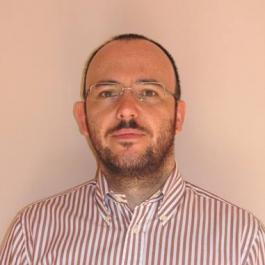Alessandro Carlucci

Alessandro Carlucci
I was born in Tuscany, where the local dialects are quite similar to Italian and people are not always aware of the differences between their own way of speaking and the ‘standard’ language. The language I learned as a child was a Tuscan variety from the wine-making Chianti area, but strongly influenced by the variety of Siena, the town where I grew up. I learned it mostly from my grandparents, with whom I spent a lot of time while my parents (a factory worker and a shop assistant) had to work long hours.
It was only at school that I realised (sometimes in rather unpleasant ways) that my Tuscan words and grammar did not always match those of ‘good’ Italian, which the teacher expected me and the other pupils to use. At school I also studied French, English, and Latin. My school and university teachers placed a lot of emphasis on grammar and the ability to read literary texts from the present and, more often, the past. Similarly, at university I received linguistic training so as to be able to read medieval poetry in Provençal.
Today, Italian and English are the two languages that I find natural to use, although I still speak Tuscan with some family members. Spanish and other Romance languages of which I have a passive understanding (including some of Italy’s dialects) are a bit like the ‘dead’ Latin I studied at school and university: I can usually understand them, especially if I read them, but it takes me much more effort to speak them.
What I like most about multilingualism and language learning is the spirit of spontaneous cooperation and mutual support that they can foster in all sorts of people. In many every-day situations we manage to communicate and understand each other, even if we speak a language in more or less different ways. When I try to express myself in Spanish, my Spanish-speaking friends often laugh. But they still help me by being patient, trying to understand me and instinctively suggesting the words I need. And, if necessary, we can always throw in a sentence in English, Italian, French or other languages which we somehow share.
In my role as an MHRA Research Associate on the Creative Multilingualism programme, I worked on Italy’s linguistic history, especially the late medieval period, with a particular view to assessing historical evidence for intelligibility (or its absence) between speakers of different Italian dialects.
For an overview of my research interests and publications see: http://www.mod-langs.ox.ac.uk/people/a-carlucci